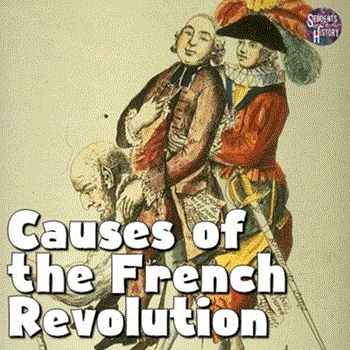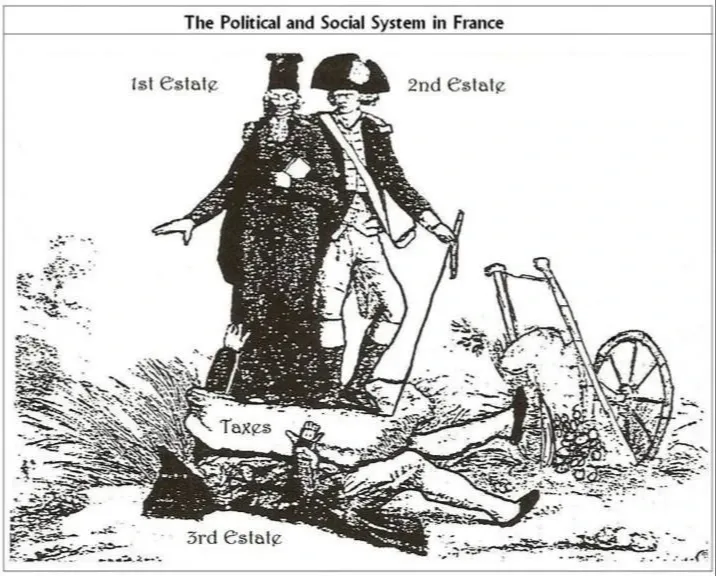Causes of the French Revolution

As the world neared the end of the 1700s, France was long established as one of the wealthiest and most powerful countries in Europe. Although most of its population were poor farmers who would never reap the benefits of that status, France had positioned itself highly among the other European nations.
However, the status quo could not prevail, and within a few short years, the French Revolution would completely capsize all sense of normalcy in the country. This Revolution would eventually result in the death of the king, his wife, and countless others.
The causes of the French Revolution can be narrowed to five main factors: the Estate System, absolutism, Enlightenment ideas, food shortages, and the American Revolution.
The Estate System placed people into groups based on birth and was known as the Ancien Regime. The First Estate was made up of the clergy who led the Catholic church. They were the smallest group and paid no taxes. The higher clergy like bishops enjoyed many benefits, while the lower clergy were common priests and nuns.
The Second Estate consisted of the nobility and was less than 2% of France's population. They were also exempt from taxes and having to perform work for the government.

Most of France's population belonged to the Third Estate. Most were free peasants while others were urban laborers, including the bourgeoisie. The bourgeoisie were France's educated middle class. They, like the rest of the Third Estate resented having to pay taxes to support the other Estates and having little say in government.

To further fuel the anger of the French population, King Louis XVI had near absolute power over his subjects, a practice known as absolutism.
Louis XVI was convinced that his status came from God, and that gave him the right to maintain the highest level of power in the country.
It was quite common for Louis XVI to ensure that the people in the highest tiers of society were taken care of, and that they had adequate amounts of food. Conversely, the bottom tiers of society were often left starving.
Food shortages ravaged the country, and there was a low supply of bread due to poor harvests. Thus, as the demand for bread increased, so did the price of bread, since it was so hard to come by. This in turn increased tension and anger among the 3rd Estate.
New ideas about how society and government should work were emerging at this time. These ideas would come primarily from Enlightenment philosophers who promoted using science and reasoning over tradition. Enlightened thinkers championed new ideas regarding government, equality, and democracy.
The people of France were also inspired by the American Revolution in which the United States successfully gained independence from Britain. This served as an example of a successful revolution, and provided a guideline as to how a country could operate as a republic instead of a monarchy.